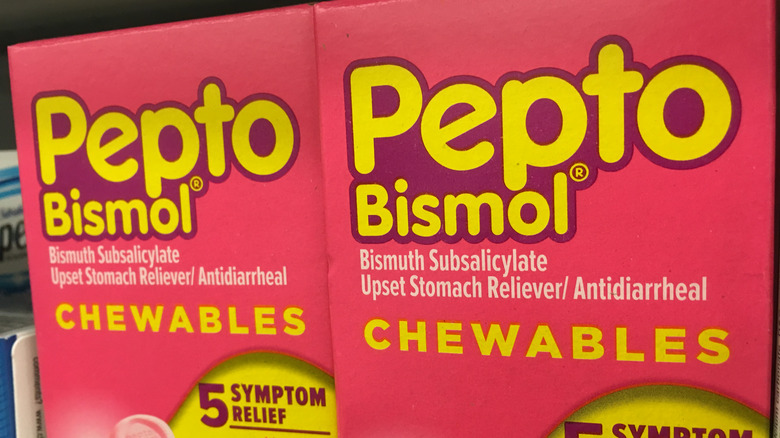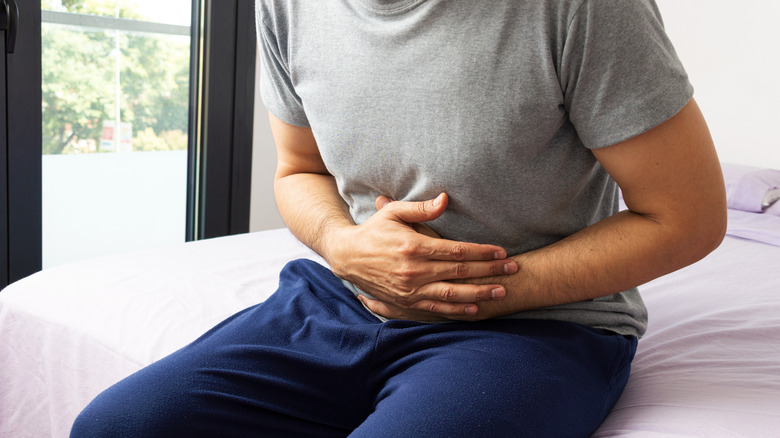This Is What Pepto-Bismol Does For Your Body
Pepto-Bismol is a common medication used to treat intestinal issues like nausea and diarrhea. It's known for its trademark bright pink color and is often a staple in medicine cabinets everywhere. So how does it actually work?
Pepto-Bismol was created in the early 1900s, using a different formulation than we have today, according to Pepto-Bismol. From the start, a colorant was used to make it pink, and it was actually made in an effort to treat cholera, which caused severe diarrhea and vomiting. While cholera would eventually be treated with antibiotics, Pepto-Bismol was effective in alleviating the symptoms.
Today, the main ingredient in Pepto-Bismol is bismuth subsalicylate, which comes in liquid, tablet, or chewable tablet form (via MedlinePlus). It's part of a class of medications called antidiarrheal agents. It can often cause darkening of the stool or tongue while taken, though this usually goes away in a few days and isn't cause for concern. So how does Pepto-Bismol actually work to relieve an upset stomach?
How does Pepto-Bismol actually work?
Pepto-Bismol has antidiarrheal, antibacterial, and anti-inflammatory properties, according to a 2013 study published in Clinical and Experimental Gastroenterology. Together, these properties help treat heartburn, indigestion, upset stomach, and diarrhea (via MedlinePlus). Pepto-Bismol works by decreasing the amount of fluid into the bowel, reducing inflammation in the intestine, and killing the bacteria that can cause diarrhea. It can prevent your body from releasing prostaglandin, a chemical that causes inflammation, and block toxins produced by bacteria, like E. coli, per Healthline. It also has minor antacid properties.
While Pepto-Bismol has minor side effects, it can be dangerous when combined with certain prescription medications, such as ACE inhibitors, antiseizure drugs, blood thinners, diabetes medications, aspirin, and some antibiotics (via Healthline). It can also be unsafe if you suffer from stomach ulcers, kidney problems, gout, or diabetes. If you experience ringing in your ears or bloody stools, you should contact your healthcare provider right away.


